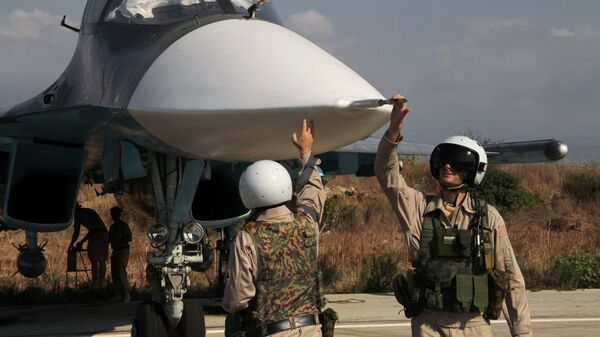"Russian military presence will not worry us until it is directed against us. We do not see any hostility toward Israel in Russia's presence [in the Middle East]. We view it as legitimate and aimed at protecting Russian interests," Israel's Foreign Ministry spokesman Emmanuel Nahshon said at a meeting with Russian reporters.
According to the spokesman, there is no possibility of a conflict between the sides.
"We do not see any contradictions between Russian and Israeli interests, though there are issues where we disagree, and Iran is one of them," Nahshon said.
When asked about the potential deployment of Russian troops to Sudan and Egypt, discussed during the visit of Sudanese President Omar Bashir to Russia in late November concerning the alleged plans on the establishment of a military base on the Red Sea, Director General of the Israeli Foreign Ministry Alexander Ben-Zvi has shared a similar view of the Russian presence.
"It poses no threat to Israel," Alexander Ben-Zvi said.
The talks were followed by last week's order by Russian Prime Minister Dmitry Medvedev to the Russian Defense and Foreign Ministries to hold negotiations with Cairo on the use of Egypt's airspace.
Moscow and Tel Aviv have been in contact since the beginning of Russia's military operation in Syria, including regular interaction on the highest level, which resulted in the development of a mechanism helping to avoid accidental collisions between the forces of two countries in the airspace of the Arab Republic. During the recent phone conversation between Russian President Vladimir Putin and Israeli Prime Minister Benjamin Netanyahu late in November, the sides have pointed out the progress in the fight against terrorism in Syria.
Russian Operation in Syria
The Russian Air Forces have been supporting the Syrian government forces in their fight against terrorists since 2015 at the request of Syrian President Bashar Assad.
On October 16, Russian Defense Minister Sergei Shoigu said that the operation against terrorists in Syria was coming to an end as less than 10 percent of the country's territory remains under the control by terrorists.


